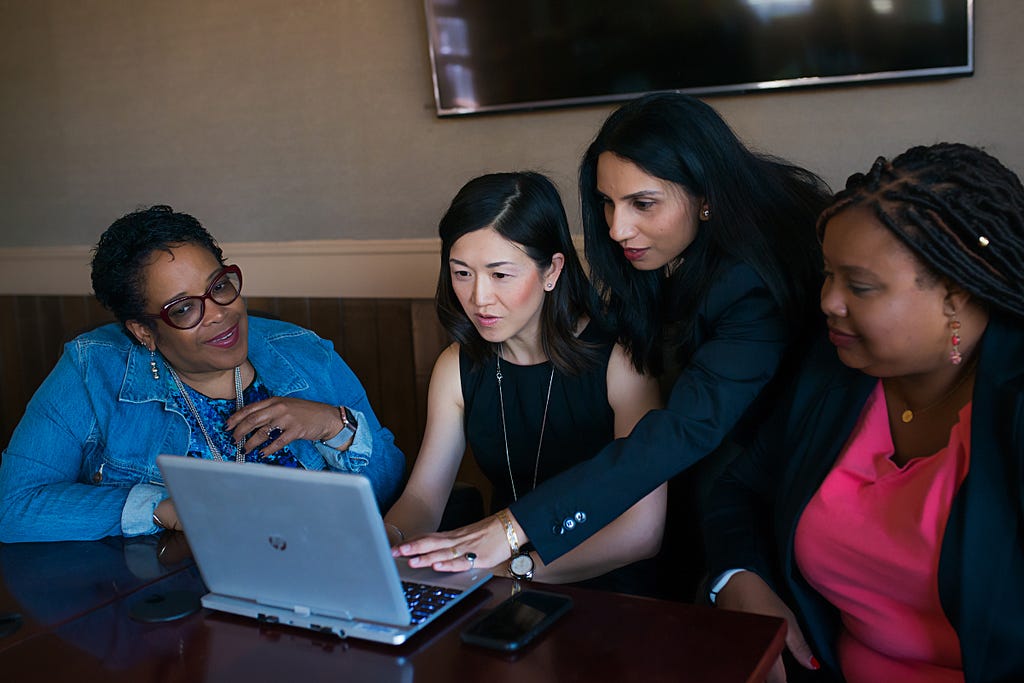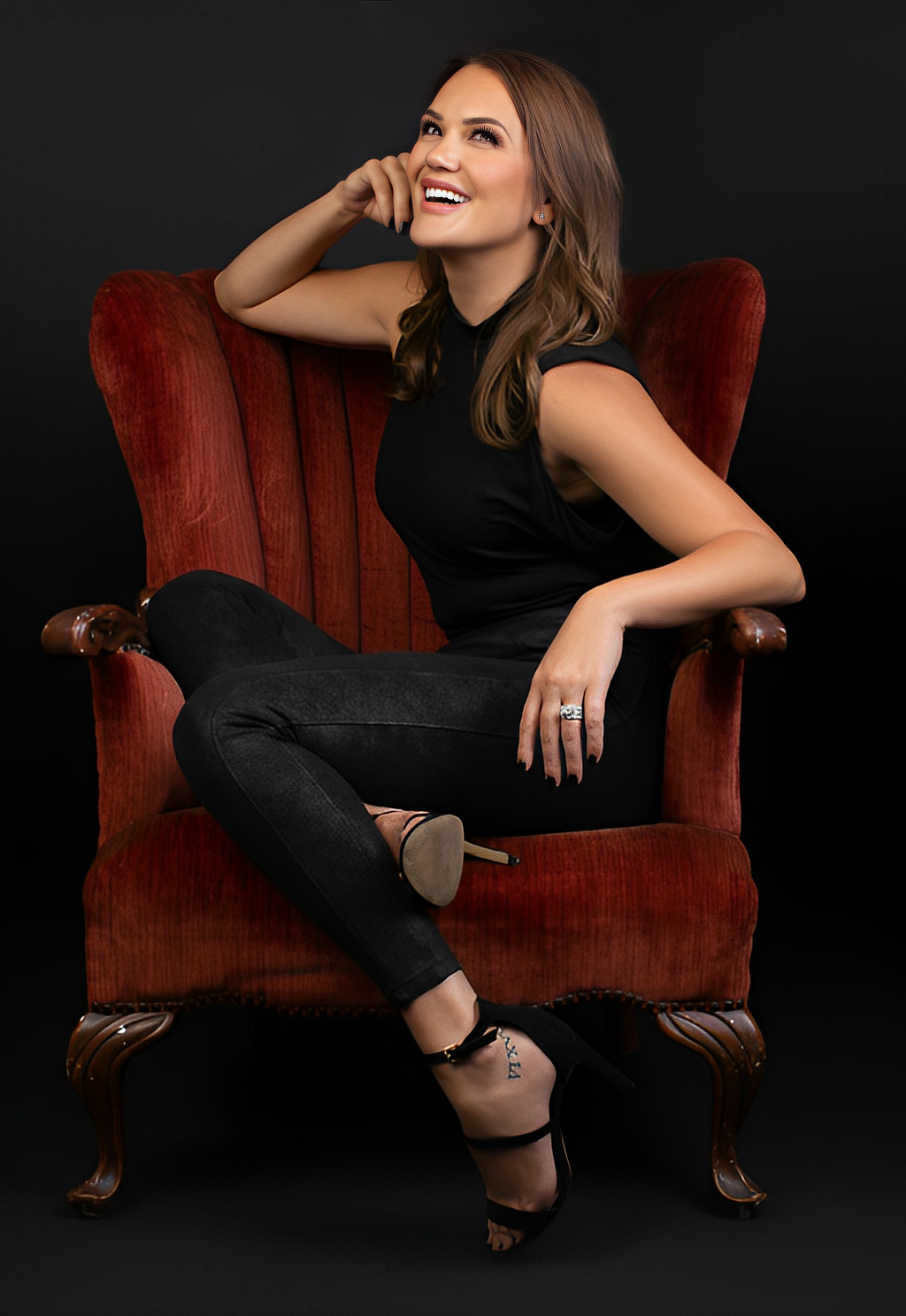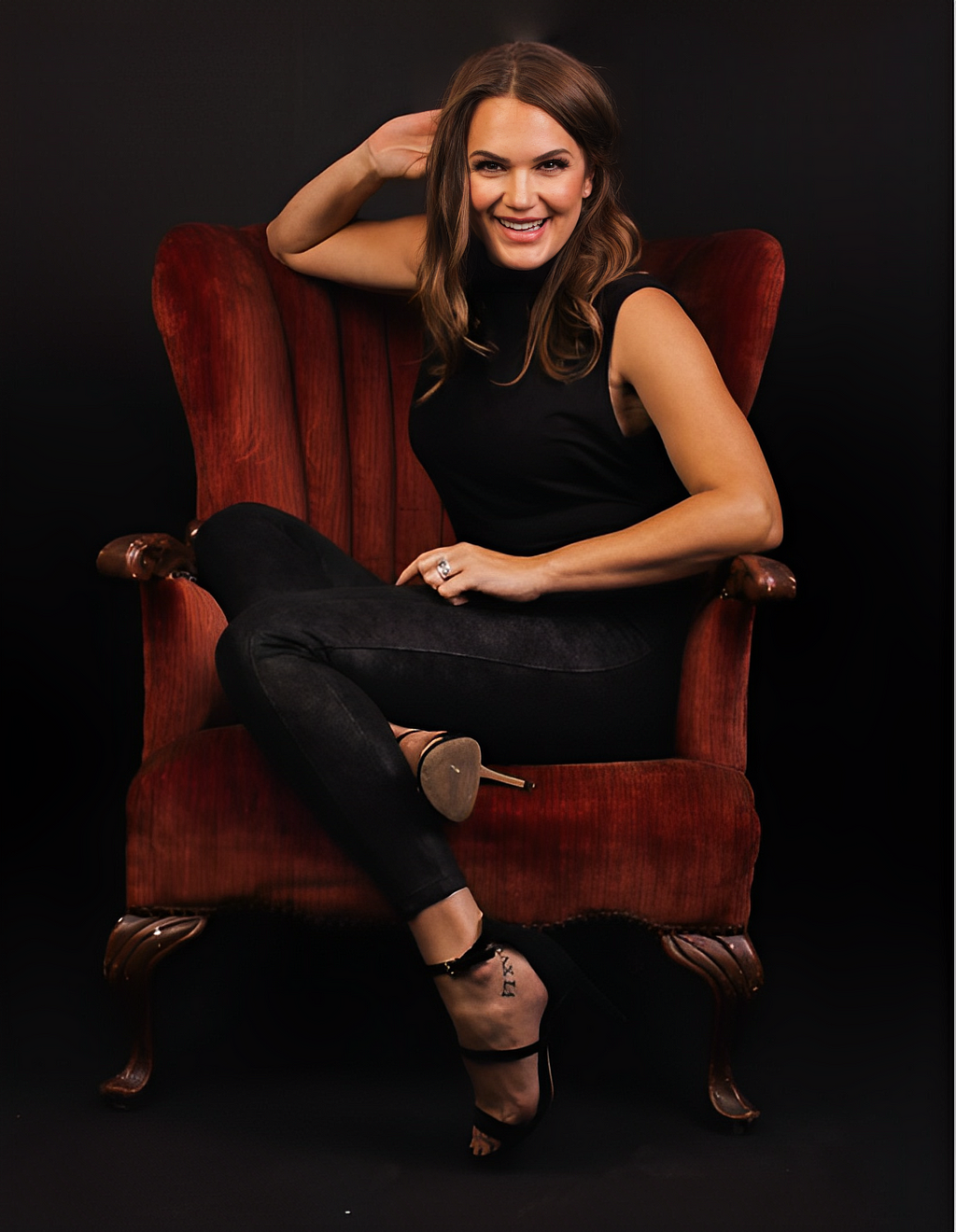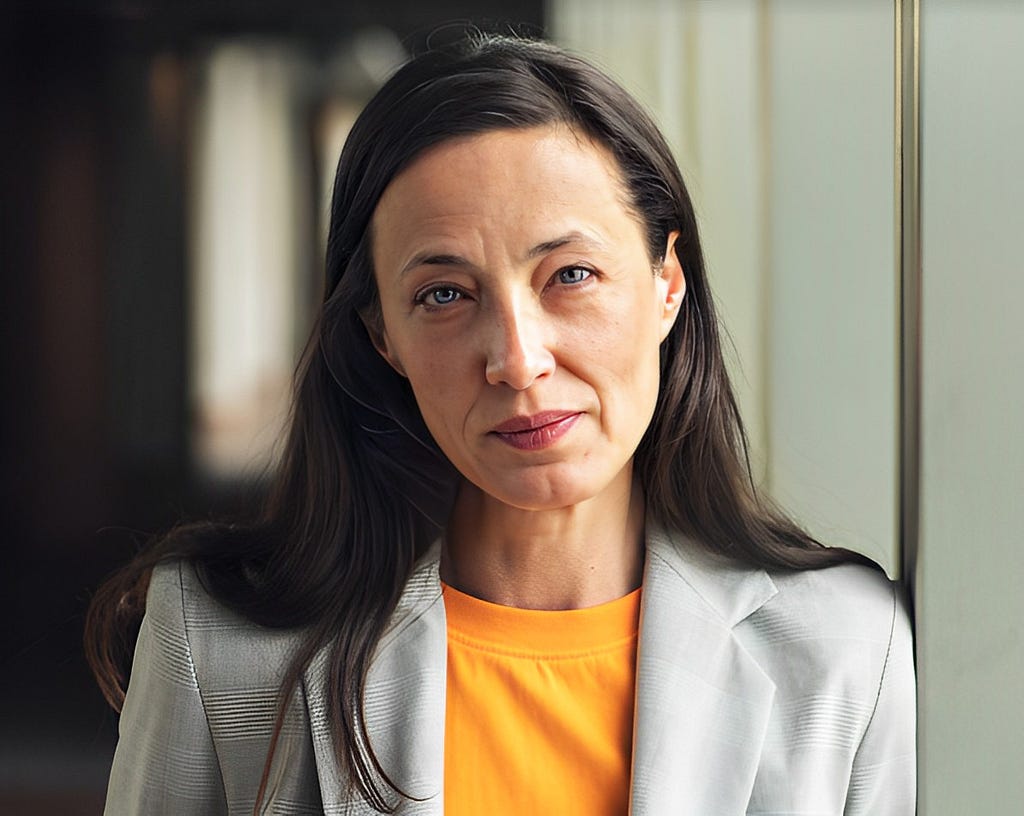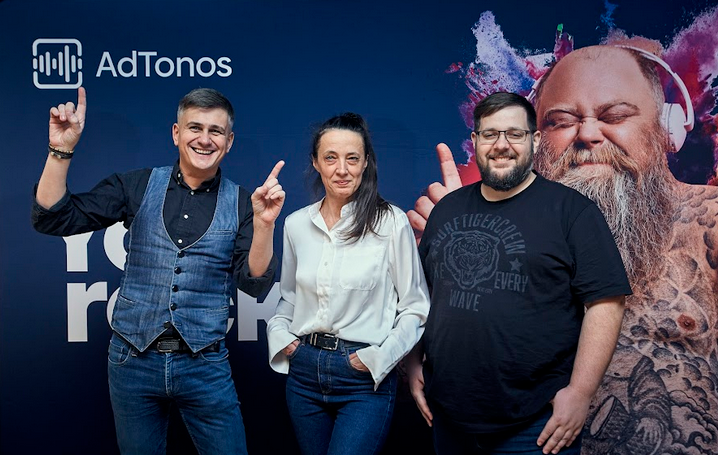An Interview With Candice Georgiadis
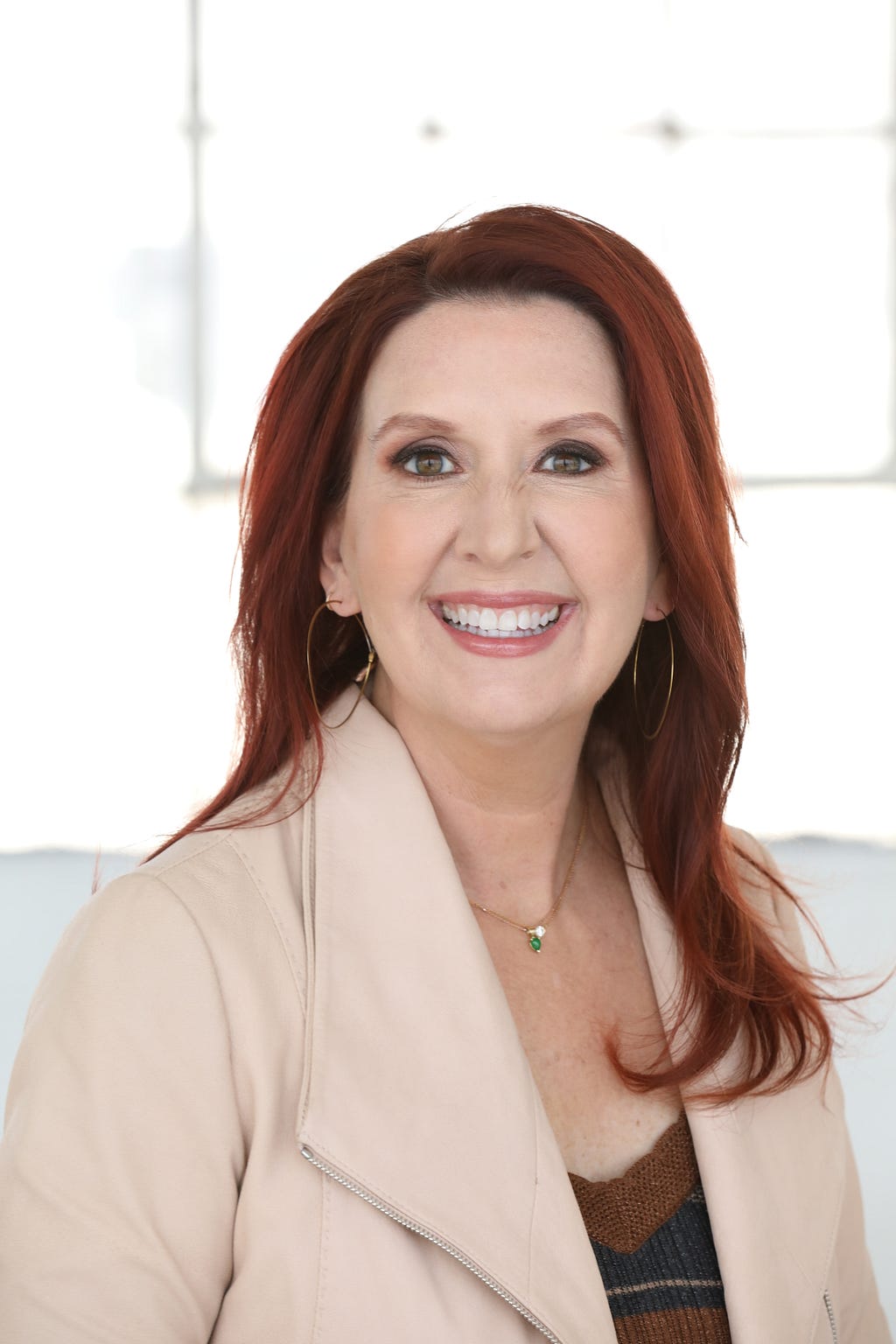
Bring Nature inside: I love to go plant shopping and have a favorite nursery close to home that I call my happy place. It inspires me when I look at all of the different plant varieties and the beautiful different colors of the pottery to plant them. There is something rewarding about nurturing a plant and then watching it grow. It is proven to be more healthy to have houseplants in your home. They clean the air and give your home the beauty that only nature can provide.
As part of my series on the “5 Things You Can Do To Help Your Living Space Spark More Joy”, I had the pleasure of interviewing Jen Dallas
Jen Dallas Interiors is a multifaceted design studio that focuses on high-end residential and commercial projects both local and worldwide. Their design team manages all aspects of a project from start to finish, including consulting with architects, builders and craftsman to ensure the final result reflects the design intent. The key to their project success is the wholehearted connection they develop with their clients. Most recently their studio launched their own product line called Maple Jude & Co., Lifestyle Shop for the Home, that offers original textile patterns all hand-drawn at their Santa Monica, California studio. Jen also has her own indoor/outdoor rug collection as well as lighting collections coming soon.
Thank you so much for joining us in this series! Before we dive in, our readers would love to learn a bit more about you. Can you tell us a story about what brought you to this specific career path?
I always knew I wanted to be an interior designer. I’m a sensitive, intuitive person that can hone in on what makes a space comfortable and feel good. At a young age, my mom would hear me moving furniture around late at night because, “I didn’t like my dresser in its location”. As a life-long art student, I love to draw and have always had a very creative side to me. Also, I love people and I find that this profession melts all of those passions together. My sensitivity, my artistic side and my desire to help and inspire other people.
Can you share the most interesting story that happened to you since you started this career?
Living in LA for the past 20 years, I have had some amazing experiences in designing homes from new construction to remodeling. I have had the opportunity to meet people that I never thought I would have the opportunity to meet, to see, and be part of some amazing projects. I think what makes the most interesting story involving my projects is when I have the upmost trust from a client. We always like to do a big reveal when installing homes for a client. What makes it more interesting is when we get to do a complete turnkey project. I have experienced this twice in my career and it is the most rewarding of installations. We select everything from furniture, rugs, bedding to cabinetry design, appliances and window treatments. For both projects, I choose flatware, dishes, spices for the spice drawer. To what books were sitting on the bedside table. Talk about playing house! It is always very rewarding to see my client’s face upon their return.
Can you share a story about the funniest mistake you made when you were first starting? Can you tell us what lesson you learned from that?
When I was a design student in school I worked for a retail drapery and fabric showroom. I had a passion for design from the beginning and drew in customers who liked to work with me. One day I was helping someone design their dining room and had an idea that we could have the finials on the drapery rod painted a color. The customer loved that idea. The problem was the store where I worked did not sell the the colored finials and definitely didn’t offer to paint them. So, I suggested to the customer we buy an unfinished pair and offered to painted (faux) them myself. The finial order came in and I took them home to paint. I presented them to the customer and they loved them. My boss on the other hand was not happy. He was livid and did not like that I had sold something that was customized. I thought I might be fired. He had quite a few words for me that day. The next day I came in and was pleasantly surprised that my boss suggested the idea that my finals would be part of his inventory and would pay me for my artistry to create them. My lesson: I am an entrepreneur. I love my craft. I should always suggest the best solution for my clients even if it means I am misunderstood in the beginning.
What are some of the most interesting or exciting projects you are working on now? How do you think that might help people?
I am working on some unique family homes that we personalize for each family. I love digging deep into how each home can improve the life for each client. I like to ask a lot of questions in the beginning about how they live now and what is working for them and what isn’t working. That can help set the project priorities for us on building or remodeling their home. I am working on a ranch that will be a future winery and event space. I love this new project because it melds all of my experience in to one project. My work goes beyond the physical as I also consider how things feel to those who live there. How does the door handle feel in your hand? Is the lighting enough or too bright? Will someone trip over a rug if it is too thick? There is so much for a designer to consider when creating a home. Good design feels simply feels good and it changes the dynamic of our mood and our perspective. A well-designed home or space inspires us and can allow us to relax and release stress in our body. Our environment is powerful. It can greatly influence and enhance the quality of our life.
Can you please give us your favorite “Life Lesson Quote”? Can you share how that was relevant to you in your life?
“You are where you want to be”. I have always said that to myself for years…..I like the quote because it holds you responsible for your life and where you are at the current moment. We only have one opportunity to live our best life right now. It is my responsibility to create a life I love and empowers me. My life can then be used to help others to live their best lives too.
None of us are able to achieve success without some help along the way. Is there a particular person who you are grateful towards who helped get you to where you are? Can you share a story about that?
I had an amazing mentor when I first moved to LA. I worked for the interior designer, Chris Barrett for over five years before I went out on my own. She taught me the LA design scene and mentored me in residential design. I was a hotel designer before I moved out to LA from Chicago. Chris hired me part time to assist her on a hotel project she had just acquired. She needed someone with hospitality experience. It was the San Ysidro Ranch in Santa Barbara. They needed a residential approach to the project because the hotel is made up of a variety of cottages. We were a great team and it was my first introduction to working as a designer in LA. Chris is a talented designer and an amazing person. I am grateful to of worked with her and still call her my friend.
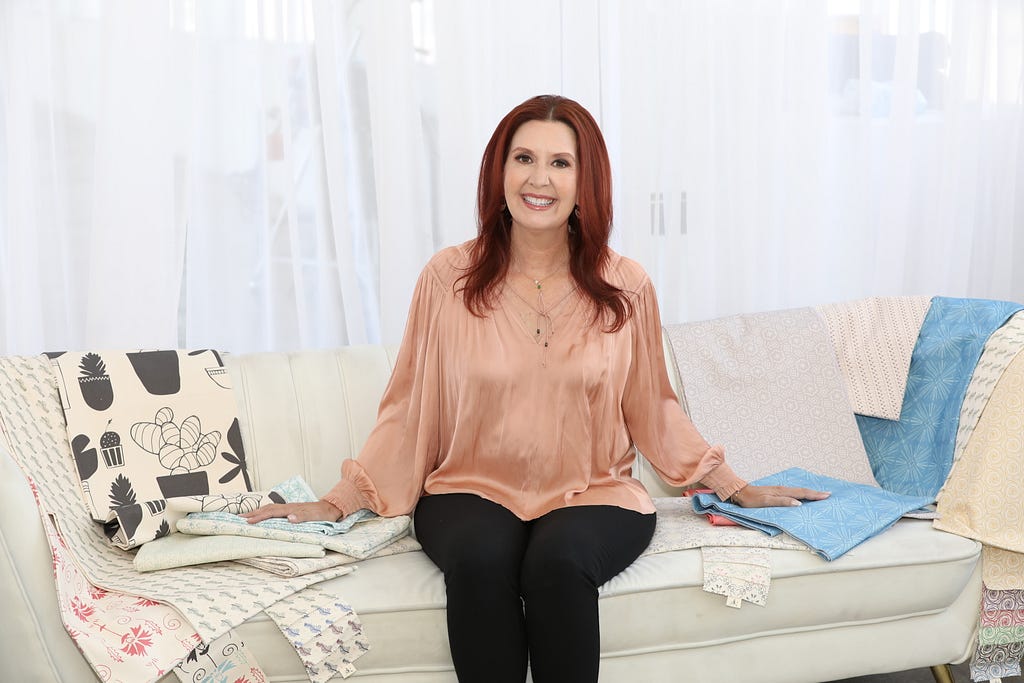
Thank you for that. Here is the main question of our discussion. What are your “5 Things You Can Do To Help Your Living Space Spark More Joy” and why. Please share a story or example for each.
1. Little Things are Joyful Things: What are some things you do everyday that can be embellished in some way to make doing what you are doing more fun? For example, I use a Nespresso coffee maker and instead of keeping the coffee capsules in their separate boxes I picked up a beautiful, antique container that I fill with my favorite coffee capsules. Keep flowers at your bedside. Tape a favorite quote to your vanity mirror. These things might seem small to do but seeing these “gifts” in my everyday life make me smile every time I use it or see it. I think the way you spark joy is by looking at the little things you can add to your daily life that creates a higher quality of life for you. Joy is in the little things.
2. Framed Memories: I love to frame notes, silly photos and art that most people would look at and think what is that about? Nothing professional about any of it. All of these pieces represent a memory in time, a person I love or a place in time I want to remember. Most of what I frame are things I have created with my son. Starting with our finger paint sessions when he was super small to a variety of self portraits he has done of himself through his elementary school years. I have a couple of old candid photos of me as a baby or my grandmother at a very young age. I have collected these pieces over different chapters of my life and have had them all professionally framed. Not one piece is perfect or something that would be placed in a gallery but it all brings me joy to look at on a daily basis. They always support my joy and make me smile.
3. Bring Travel Home: During my travels I like to create a list. A list of things I love about the hotel or place I am visiting. I think of ways to create that feeling or experience at home. For example, in Italy they had these floral tablecloths with bright colors on every table. I bought one and it helped me to bring Italy home with me. Or maybe it is a meal or a style cookie that you had picked up as you were sight seeing….upon returning home, I will find the recipe to bake those at home. That freedom feeling of being on vacation and experiencing something new is a feeling of joy I love to feel. If I can create that for myself, in my own home, often it makes my life much more joyful.
4. Bedroom Peace and Comfort: Create a bedroom that feels like a personal haven for you. A bedroom is a restorative place. It should be comfortable and peaceful. Somewhere that you can go and release stress. If there is one room in the house that can give back to you, it is your bedroom. The bed is the best place to start. Buy a mattress that is the most comfortable. Most mattress companies give you some suggestions depending on your sleep position. I like to use organic sheets on my bed and have recently discovered I like linen sheets too. I also like to make my bed in a way that allows me to lounge in bed as well as get good sleep. For lounging, I like to have my regular standard sleeping pillows along with a couple of Euro pillows to prop me up while sitting in bed. I like to have a throw at the end of my bed, that I can tuck my feet under or pull up over me without having to unmake or get all the way into the bed. I like to use soft materials such as cotton, washed linen and down pillows. Down pillows need some maintenance but they are worth the comfort. The combination of using different textures on a bed makes it pretty to the eye but also provides more comfort. I like mixing a cotton throw at the foot, mixed with a cotton quilt over the bed. Comfort is different for everyone the trick is to take time to find what works and feels best for you. I like to have bedside table lamps and not overhead lights. I like to use soft white bulbs and not bright white. The soft white is a warmer glow and feels more restful. Get rid of clutter. If there is one place in the home that should be 100% clutter free it is your bedroom. Take pride in how your bedroom looks and feels as it is essential in sparking more joy in the comfort of your bedroom.
5. Bring Nature inside: I love to go plant shopping and have a favorite nursery close to home that I call my happy place. It inspires me when I look at all of the different plant varieties and the beautiful different colors of the pottery to plant them. There is something rewarding about nurturing a plant and then watching it grow. It is proven to be more healthy to have houseplants in your home. They clean the air and give your home the beauty that only nature can provide.
You are a person of great influence. If you could start a movement that would bring the most amount of good to the most amount of people, what would that be? You never know what your idea can trigger. 🙂
I would start a movement on the importance of feeling confident and secure as your own person. This is what I hoped most for my son. If as people we have a solid foundation of feeling good in our own skin and secure as a person, it sets you up for such a better life experience. Far too many people struggle with low self-esteem and fear of judgement in revealing who they really are. This goes beyond race, nationality, ethnicity or gender. It is something we all as human beings need in order to be happy and to have a fulfilled life. If you have confidence, you aren’t afraid to try new things and know without a doubt that the right people and experiences will show up for you. You have the confidence to put yourself out there and to try. So many people give up before they even get started. I would love to help people live large and believe in themselves fully.
We are very blessed that some of the biggest names in Business, VC funding, Sports, and Entertainment read this column. Is there a person in the world, or in the US whom you would love to have a private breakfast or lunch with, and why? He or she might see this, especially if we tag them 🙂
Yung Pueblo. He is an amazing poet, meditator and writer. He inspires me through his writings and I would love to meet him in person and discuss his new book “Lighter”. I have read his other two books “Inward” and “Clarity and Connection”. His written works focus on the reality of self-healing, the movement from self love to unconditional love and the wisdom that comes when we truly work on knowing ourselves. I always walk away after reading a book or a quote by him, forever changed.
How can our readers follow you on social media?
Instagram: @jendallas @maplejude
Thank you so much for joining us. This was very inspirational!
Jen Dallas: 5 Things You Can Do To Help Your Living Space Spark More Joy was originally published in Authority Magazine on Medium, where people are continuing the conversation by highlighting and responding to this story.




